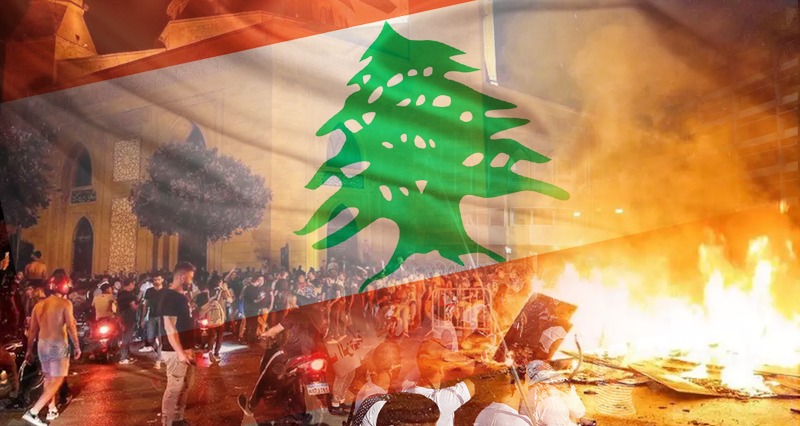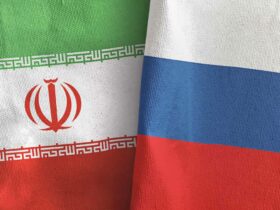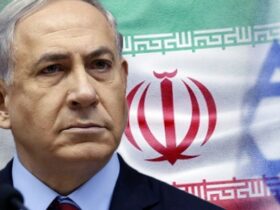About three months ago, when thousands of Lebanese went into the streets demanding systemic change and opposing corruption, they likely never thought that their move would lead the country into a dead end and bankruptcy.
Although many politicians were asking Saad Al-Hariri not to resign from his post as the prime minister, the Americans, French and Saudis convinced him to do so, promising that he would return as a stronger prime minister with their support.
However, what actually happened was that after Al-Hariri resigned, the country was left without any administration; Lebanese politicians are still unable to agree on a new government.
The Lebanese pound lost about 40% of its value in less than three months. While the political groups in the country’s parliament fight for their share in the new government, the demonstrators in the streets are still hoping to bring a technocratic government into power.
The Lebanese pound has lost around 30% of its value in the unofficial exchange market for the first time since it was valued at LBP 1,515 to the dollar in 1997.
???? https://t.co/R2tgmJVRH9#Lebanon #Beirut #Dollarcrisis #RemoteWork #workfromhome #jobsearch #Jobs pic.twitter.com/8qual3bwZ9
— RemoteLebanon (@RemoteLebanon) January 17, 2020
Mr. Hariri’s followers are still fighting to prevent appointed Prime Minister Hassan Diab from forming his government hoping that his failure would force the Lebanese president to appoint Hariri as the prime minister again. The so called 8th of March group (supporters of Hezbollah and the resistance) are not ready to lose their share in the government, as they have the majority of chairs in the parliament.
On January 15, rumors spread in Beirut that Hassan Diab had decided to form a government with 18 ministers considered to be experts– but not technocrats. At this point, some Lebanese demonstrators came out for small scale demonstrations insisting on a technocrat government.
Over 300 people were injured as protesters clashed with security officials in Lebanon. With the country sinking into its worst economic crisis in decades, anger has boiled over at the ruling elite https://t.co/vH17tHshg4 pic.twitter.com/PVIsRuAIRa
— Reuters (@Reuters) January 19, 2020
Many believe that the reason these demonstrations were still so small is that the countries involved in the situation in Lebanon which had been promoting the demonstrations are now busy with more complicated issues which directly affect their national interests: in other words, foreign powers are no longer as interested.
Washington’s assassination of the head of Quds Force of the Islamic Revolutionary Guard, General Ghassem Soleimani, has taken the region to the edge of war, which has strained the resources and fixated the attention of everyone involved.
It is clear that such a war would deeply affect the entire region and, at the very least, send another wave of millions of refugees pouring into Europe.
Moreover, the price of oil would reach incredibly high prices that could ruin economies across the globe. On a geopolitical level, countries would be forced to get involved in the war either directly or indirectly, potentially leading to a world war.
In short, the international community is occupied with a more important issue and doesn’t have spare time to devote to Lebanese demonstrators, especially considering the often less than serious manner of the protests which often look more like street parties.
Moreover, the Lebanese people are tired of the chaos the country is facing. They want stability and calm… after all, the economic pressure that resulted from the fall of government and the never-ending demonstrations have affected everyone by this point.
According to international bank statistics, about 150,000 Lebanese lost their jobs over the past three months, the demonstrations destroying businesses while unemployment grew from 30% to over 50%.
https://twitter.com/beatricebirgit/status/1217351936409788416
Many people are angry about the movement and have begun to come out against it.
The demonstrators were not able to form a leading group to speak on their behalf and still don’t have precise demands.
Although the demonstrators insist that they don’t represent any political or social group and want to continue on in this fashion, there are extreme limitations to this type of political activity.
Water cannon, tear gas & injuries as #Lebanese protesters clash with police#LebaneseProtests
VIDEOS: https://t.co/zZAnXE8lSS pic.twitter.com/IBKaJgmcJE
— RT (@RT_com) January 19, 2020
This lack of strategy or vision makes it easy for veteran political parties in the country to ride on the waves created by the demonstrations and summarize the demands of people in their own terms.
The Lebanese people and their politicians have to face the reality that they are in a situation where the rest of the world has lost interest, and, for the first time in recent memory, face their fate on their own. At the same time, this grants Lebanon the opportunity to face the problem on their own, accept the expert government and move on… otherwise, they will be forced to wait until international interests regain their interests, which could take a very long time.

















Leave a Reply